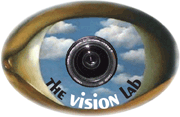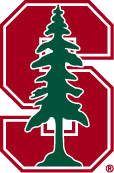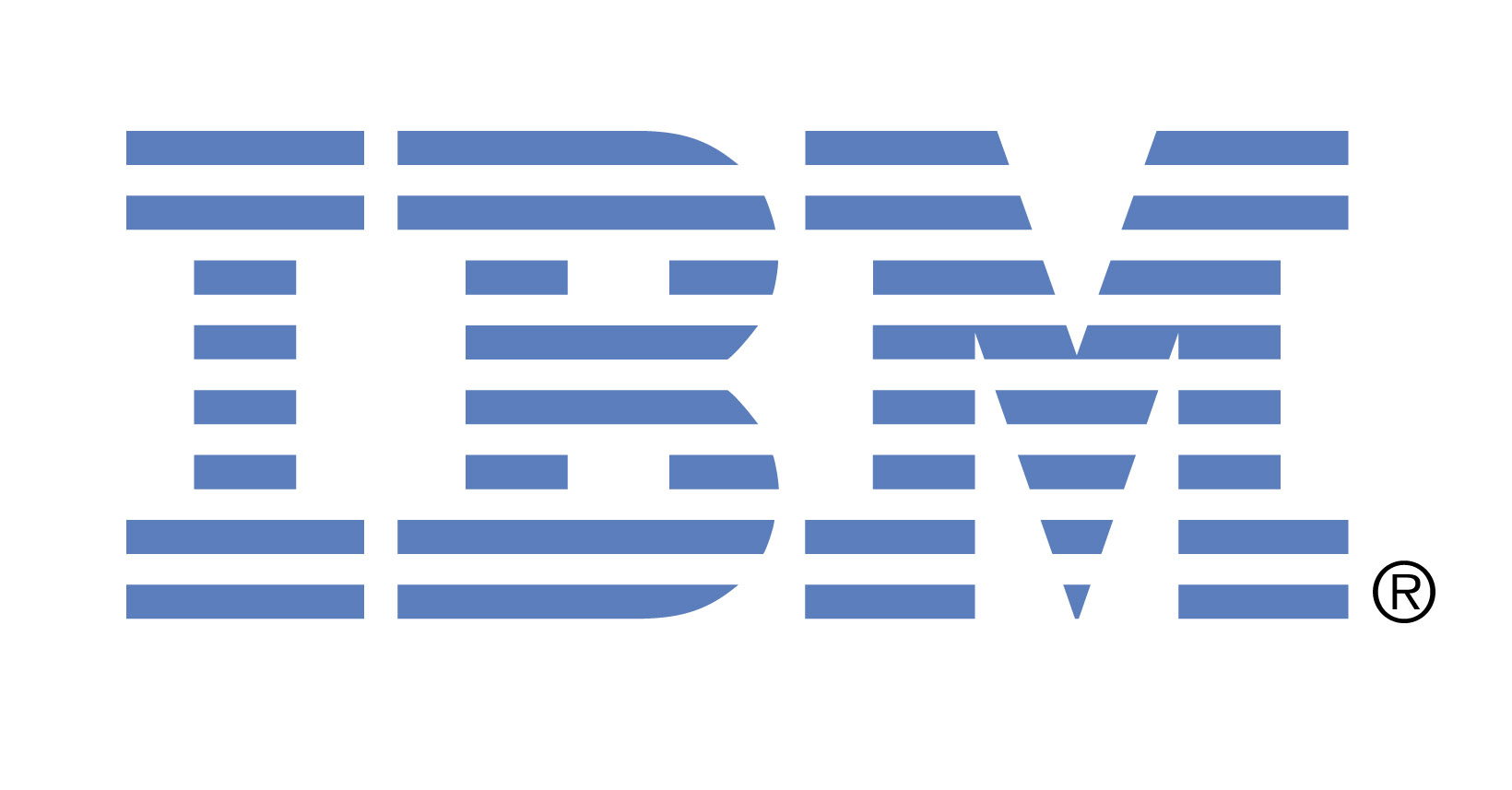Did you miss BAVM 2009?
Details about BAVM 2010 are now available!
Sponsors
Overview
Demo & Poster Registration Deadline: July 26th, 2009.Attendance Registration Deadline: July 31st, 2009.- Organizers: Li Fei-Fei (Stanford University). Juan Carlos Niebles (Princeton/Stanford University)
The Bay Area Vision Meeting (BAVM) is an informal gathering (without a printed proceedings) of academic and industry researchers with interest in computer vision and related areas. The goal is to build community among vision researchers in the San Francisco Bay Area, however, visitors and travelers from afar are also encouraged to attend and present. New research, previews of work to be shown at upcoming vision conferences, reviews of not-well-publicized work, and descriptions of "work in progress" are all welcome.
Topic and Format
The topic of BAVM 2009 is Image and Video Understanding. This half-day meeting will consist of keynote speeches by invited speakers as well as demos and poster sessions. We will host posters and demos, and a few selected demos will be highlighted on a Demo Spotlight. The meeting is open to all researchers, faculty and students.
Program
A downloadable program is available here.
Confirmed Speakers
- Trevor Darrell, ICSI and EECS, UC Berkeley. Overcoming Ambiguity in Visual Object Recognition.
- Li Fei-Fei, CS, Stanford. Towards total scene understanding: Data-driven learning meets detailed image modeling.
- Jack Gallant, Psychology, UC Berkeley. A Bayesian framework for reconstructing perceptual experiences.
- Jitendra Malik, EECS, UC Berkeley. The interaction of bottom-up and top-down processing in visual recognition.
- Jay Yagnik, Google. Video Content Analysis: A YouTube Perspective.
Agenda
- 12:30-1:15pm Registration
- 12:30-1:15pm Social gathering and informal presentations
- 1:15-1:20pm Welcome message
- 1:20-1:40pm Invited talk: Jitendra Malik
- 1:40-2:00pm Invited talk: Jack Gallant
- 2:00-2:20pm Invited talk: Li Fei-Fei
- 2:20-3:20pm Poster Session 1
- 3:20-3:40pm Invited talk: Trevor Darrell
- 3:40-4:00pm Invited talk: Jay Yagnik
- 4:00-4:30pm Demo spotlight
- 4:30-6:00pm Poster Session 2 & Demos
Poster Session 1
- Image-based Retrieval with a Camera Phone. Sam S. Tsai.
- Training-free Nonparametric Object and Action Detection from Images and Video. Hae Jong Seo.
- Convolutional deep belief networks for scalable unsupervised learning of hierarchical representations. Honglak Lee.
- Kernelized Locality-Sensitive Hashing for Scalable Image Search. Brian Kulis.
- Measurement of eye velocity using active illumination. Jeff Mulligan.
- Max Margin Additive Classifiers for Detection. Subhransu Maji.
- Streaming Mobile Augmented Reality. David M. Chen.
- Categorization of good and bad examples of natural scene categories. Barry Chai.
- Transient Rendering. Adam Smith.
- Recognition Using Regions. Chunhui Gu.
- Reading Challenging Barcodes with Cameras. Orazio Gallo.
- Multimodal retrieval for diagnostic decision support. Tanveer Syeda-Mahmood.
- Making The Real World Virtual: Tracking Board Game Pieces. Steven Scher.
- A Region-based Approach to Scene Understanding. Stephen Gould.
- Extracting Moving People from Internet Videos. Juan Carlos Niebles, Bohyung Han, Andras Ferencz, Li Fei-Fei.
- Segmentation of Brain Tumors based on Multi-Modality Magnetic Resonance Images and Spectroscopy. Alexandra Constantin, Ruzena Bajcsy, Sarah Nelson.
- From Contours to Regions: An Empirical Evaluation. Michael Maire.
Demo Spotlight
- Mediating Reality (Realtime Autostereo Capture/Display). Harlyn Baker, Zeyu Li. HP Labs/UC Berkeley.
- Visual Product Search. Mark Ruzon. A9.com.
- Realtime 3D Vision. John Woodfill. TYZX, Inc.
- Large Scale Content-Based Web Image Search. Qifa Ke. Microsoft Research Silicon Valley.
- Image similarity at Like.com. Navneet Dalal. Like.com.
Poster Session 2
- Color constancy of 3D objects: effect of surface material properties. Bei Xiao.
- Distributed multiview image coding through unsupervised learning of disparity. David Varodayan.
- Unsupervised Learning of Stereo Vision with Monocular Cues. Hoang Trinh.
- Large Displacement Optical Flow. Thomas Brox.
- Mining Discriminative Adjectives and Prepositions for Natural Scene Recognition. Bangpeng Yao.
- A Novel Feature Descriptor Invariant to Complex Brightness Changes. Feng Tang, Suk-Hwan Lim, Nelson L. Chang.
- Beyond Categories: Recognition by Association via Learning Per-exemplar Distances. Tomasz Malisiewicz.
- A Multi-View Probabilistic Model for 3D Object Classes. Hao Su, Min Sun.
- Poselets: Body Part Detectors Trained Using 3D Human Pose Annotations. Lubomir Bourdev.
- Learning Object Location Predictors with Boosting and Grammar-Guided Feature Extraction. Damian Eads.
- Probabilistic Matching of Lines for Their Homography. Taemin Kim.
- Towards Total Scene Understanding: Classification, Annotation and Segmentation in an Automatic Framework. Li-Jia Li.
- ImageNet: A Large-Scale Hierarchical Image Database. Jia Deng.
- MAP Estimation of Semi-Metric MRFs via Hierarchical Graph Cuts. Pawan Mudigonda.
- Context by Region Ancestry. Joseph Lim.
- Automatic Segmentation and Structural Study of the Bacterial Cell Wall. Fernando Amat, Farshid Moussavi.
- Learning a dense multi-view representation for detection, viewpoint classification and synthesis of object categories. Hao Su, Min Sun.
- Bayesian Localized Multiple Kernel Learning. Mario Christoudias, Raquel Urtasun and Trevor Darrell.
Guidelines for Presenters
Posters: Each poster has been assigned to a specific board. Authors can find their tack board location via labels with a poster ID number. The poster ID number can be found in the meeting program above. Note that each poster will be displayed throughout the entire meeting. Presenters can put up their posters any time prior to their session. Please note that the MAXIMUM POSTER SIZE that will fit into the boards is 4ft by 4ft.
Demos: The demo presentation will consist of a 5 minute talk during the demo spotlight plus a 1.5 hour window where you will be able to make a live demonstration of your technology.
Confirmed Attendees
Stanford
- Mridul Aanjaneya
- Fernando Amat
- Rahul Biswas
- Barry Chai
- David M. Chen
- Louis Chen
- Man Cheung
- Adam Coates
- Jingyu Cui
- Jia Deng
- Jennifer Dolson
- Li Fei-Fei
- Shangping Feng
- Kevin Gabayan
- Varun Ganapathi
- Juan (Jo Ann) Gao
- Tianshi Gao
- Stephen Gould
- Kalanit Grill-Spector
- Leonidas Guibas
- Pat Hanrahan
- Kyle Heath
- Jeffrey Heer
- David Jackson
- Xiaoye Jiang
- Amir hossein Khalili
- Farnaz Ronaghi Khameneh
- Tamaki Kojima
- Daphne Koller
- Steven Lansel
- Quoc V. Le
- Honglak Lee
- Li-Jia Li
- Takao Morita
- Farshid Moussavi
- Pawan Mudigonda
- Vidhya Navalpakkam
- Andrew Ng
- Juan Carlos Niebles
- Adam November
- Manu Parmar
- Christian Plagemann
- David Remus
- Olga Russakovsky
- Richard Socher
- Kahye Song
- David Stavens
- Michael Styer
- Hao Su
- Gabriel Takacs
- Alex Teichman
- Sebastian Thrun
- Ju Tian
- Sam Tsai
- Adam Vogel
- Brian Wandell
- Fan Wang
- Zixuan Wang
- Chen Wu
- Jiajing Xu
- Bangpeng Yao
- Yuan Yao
UC Berkeley
- Maneesh Agrawala
- Pablo Arbelaez
- Ruzena Bajcsy
- Jonathan Barron
- Lubomir Bourdev
- Thomas Brox
- Charles Cadieu
- Meng Cao
- Dan Coates
- Alexandra Constantin
- C. Mario Christoudias
- Trevor Darrell
- Ashley Eden
- Mario Fritz
- Jack Gallant
- Ricardo Garcia
- Pierre Garrigues
- Carl Henrik Ek
- Paul Ivanov
- Kilian Koepsell
- John Kua
- Brian Kulis
- Thomas Lauritzen
- Zeyu Li
- Jitendra Malik
- Michael Maire
- Subhransu Maji
- Nikhil Naikal
- Ravi Ramamoorthi
- Mathieu Salzmann
- Lei Shi
- An Vu
- Chunli Vu
- Jimmy Wang
- Allen Yang
UC Santa Cruz
- Bin An
- Priyam Chatterjee
- James Davis
- Damian Eads
- Orazio Gallo
- Prabath Gunawardane
- David Helmbold
- Peyman Milanfar
- Steven Scher
- Hae Jong Seo
- Adam Smith
- Hiroyuki Takeda
- Qi Zhao
- Xiang Zhu
UC Merced
- Daniel Leung
- Shawn Newsam
- Zaihong Shuai
- Chih-Yuan Yang
- Ming-Hsuan Yang
- Yang Yi
UC Irvine
- Hamed Pirsiavash
- Pinaki Sinha
UCLA
- Teresa Ko
- Roozbeh Mottaghi
- Michalis Raptis
U Southern California
- Vivek Pradeep
U Michigan Ann-Arbor
- Silvio Savarese
- Min Sun
U Washington
- Dingding Liu
- Kathleen Tuite
TTI-C
- Hoang Trinh
CMU
- Alyosha Efros
- Tomasz Malisiewicz
Florida State U
- Yuhua Zhu
Oregon State U
- Sinisa Todorovic
UIUC
- Eamon Caddigan
- Ali Farhadi
- Alexander Sorokin
Cornell University
- Fang Liu
Haifa University
- Shalomi Eldar
Princeton University
- Kai Li
U Toronto
- Aaron Hertzmann
Northwestern University
- Jiang Xu
Arizona State U
- Karthikeyan Natesan Ramamurthy
- Jayaraman J. Thiagarajan
SKI
- James Coughlan
- Douglas Gray
- Volodymyr Ivanchenko
- Ender Tekin
- Bei Xiao
MSRI
- Christopher Hillar
NASA
- Terry Grant
- Taemin Kim
- Jeff Mulligan
LBNL
- Prabhat
HP Labs
- Harlyn Baker
- Nelson L. Chang
- Hui Chao
- Bruce Culbertson
- Yuli Gao
- Dan Gelb
- Ton Kalker
- Qian Lin
- Tom Malzbender
- Debargha Mukherjee
- Ramin Samadani
- Irwin Sobel
- Feng Tang
- Kar-Han Tan
- Tong Zhang
- Wei Zhang
Nokia
- Radek Grzeszczuk
- Kari Pulli
- Ramakrishna Vedantham
- Yingen Xiong
Intel
- Maha El Choubassi
- Scott Ettinger
- Horst Haussecker
- Wei Sun
- Yi Wu
- Samy Bengio
- Aparna Chennapragada
- Tom Dean
- Dumitru Erhan
- Andrea Frome
- Mei Han
- Sergey Ioffe
- Yushi Jing
- Vivek Kwatra
- Thomas Leung
- David Ross
- Yang Song
- Donald Tanguay
- George Toderici
- Jay Yagnik
- Hector Yee
IBM
- Arnon Amir
- David Beymer
- Kilian Pohl
- Tanveer Syeda-Mahmood
- Fei Wang
Canesta
- Arrigo Benedetti
- Travis Perry
- Abbas Rafii
- Colin Tracey
piXlogic
- Joseph Santucci
Novafora
- Ali Zandifar
- Cuiping Zhang
Honda
- Rakesh Gupta
- Jongwoo Lim
Blindsight
- Peter Hallinan
Fujifilm
- Daniel Russakoff
Microsoft Research
- Michael Isard
- Qifa Ke
- Oliver Williams
Like.com
- Orhan Camoglu
- Navneet Dalal
- Burak Gokturk
- Diem Vu
- Tianli Yu
Obscura Digital
- Michael Harville
Adobe
- Jonathan Brandt
- Scott Cohen
- Hailin Jin
- Zhe Lin
- Brandon Smith
NVIDIA
- James Fung
Lu & Nishihara Associates
- H Keith Nishihara
Sony Electronics Inc.
- Shengyang Dai
- Ming-Chang Liu
- Akira Nakamura
- Mark Robertson
- Su Wang
- William Wong
- Liangyin Yu
- Ximin Zhang
SRI International
- Martin Fischler
A9.com
- Arnab Dhua
- Sunil Ramesh
- Mark Ruzon
- Ryan White
FlashFoto
- Kuang-chih Lee
Atirsa
- Matt Sandler
Omron
- Ambrish Tyagi
TYZX
- Gaile Gordon
- John Woodfill
Yahoo!
- Malcolm Slaney
Zeitera
- Joe Pereira
Epson R&D
- Chunyu Gao
- Xianwang Wang
- Chenyu Wu
- Jing Xiao
Trimble
- Gregory Best
- Gwen Byard
- Sybor Wang
SANYO
- Hayato Ikebe
- Shin Tanimoto
Willow Garage
- Kurt Konolige
- Caroline Pantofaru
DFKI
- Philipp Slusallek
PixBlitz Studios
- Pannag Sanketi
Earthmine
- Sherman Ng
NEC Labs
- Kai Yu
Independent
- Matt Bell
- Judy Chen
- Frances Mello
- Fred Ware
Directions
Our meeting will be held at the Annenberg Auditorium, which is part of the Cummings Art Building, Stanford University. The Nathan Cummings Art Building is located at the intersection of Serra Street and Lasuen Mall on the Stanford campus, southeast of The Oval, and east of the Main Quad.
- Driving directions to Stanford University.
- Parking: Visitors may park in lots or spaces designated with a green “P” or an “E” sign. Parking in these spaces costs $1.50 per hour between 8:00am and 4:00pm. These are the closest parking areas with walking directions to our venue: Memorial Way, Burnham Pavilion, the Oval. Alternatively, the Parking Structure 2 has many more parking spots, from there you can take the free Marguerite SLAC line to the Hoover Tower stop.
- Public Transportation from San Francisco or San Jose: Take the Caltrain to the Palo Alto Transit Center. From there, take the free Marguerite A-line shuttle to the Main Quad stop. Last stop in Main Quad is around 8:15 p.m.
Resources
- Printable Visitor Map.
- Printable Parking and Circulation Map.
Registration
We are encouraging the attendees to register and present their POSTERS and DEMOS during the meeting. Please remember that your POSTER or DEMO from recent, previous or upcoming conferences, as well as descriptions of work in progress are all welcome to register.
-
Demo registration form. Deadline: July 26th, 2009. -
Poster registration form. Deadline: July 26th, 2009. -
Attendance registration form. Deadline: July 31st, 2009.
Questions/Comments? Please contact Juan Carlos Niebles at jniebles at princeton edu
FAQ's
- Q: How do I register?
A: Registration is easy, you only need to fill in and submit the attendance registration form. -
Q: I already submitted the registration form, what do I do now?
A: You will receive a confirmation email and your name will be added to the list within 24 hours. -
Q: Registration is closed, can I still come?
A: Yes! We will have registration on site during the opening of the meeting. -
Q: Will lunch be provided during registration and the social gathering time?
A: No lunch, unfortunately. But there are several options if you need to have lunch on campus.








